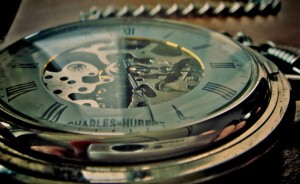Memory Distortions
Can we trust our own memories?
How Many of Your Memories Are Fake?
When people with Highly Superior Autobiographical Memory—those who can remember what they ate for breakfast on a specific day 10 years ago—are tested for accuracy, researchers find what goes into false memories.
by Erika Hayasaki, The Atlantic
“One afternoon in February 2011, seven researchers at the University of California, Irvine sat around a long table facing Frank Healy, a bright-eyed 50-year-old visitor from South Jersey, taking turns quizzing him on his extraordinary memory.
Observing from outside of the circle, I tape-recorded the conversation as one researcher tossed out a date at random: December 17, 1999.
“Okay,” Healy replied, “Well, December 17, 1999, the jazz great, Grover Washington Jr., died while playing in a concert.”
“What did you eat that morning for breakfast?”
“Special K for breakfast. Liverwurst and cheese for lunch. And I remember the song ‘You’ve Got Personality’ was playing as on the radio as I pulled up for work,” said Healy, one of 50 confirmed people in the United States with Highly Superior Autobiographical Memory, an uncanny ability to remember dates and events. “I remember walking in to work, and one of the clients was singing a parody to Jingle Bells, ‘Oh, what fun it is to ride in a beat up Chevrolet.’”
These are the kinds of specific details that writers of memoir, history, and journalism yearn for when combing through memories to tell true stories. But such work has always come with the caveat that human memory is fallible. Now, scientists have an idea of just how unreliable it actually can be. New research released this week has found that even people with phenomenal memory are susceptible to having “false memories,” suggesting that “memory distortions are basic and widespread in humans, and it may be unlikely that anyone is immune,” according to the authors of the study published in Proceedings of the National Academy of Sciences (PNAS)…”
For the complete article click here.
Share

